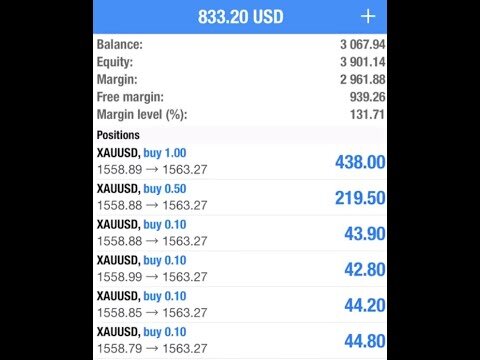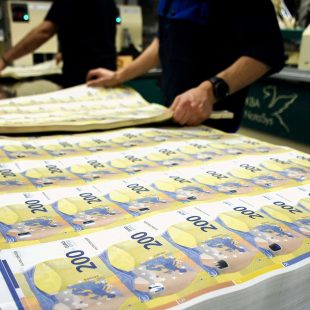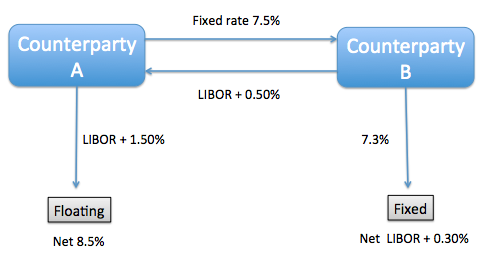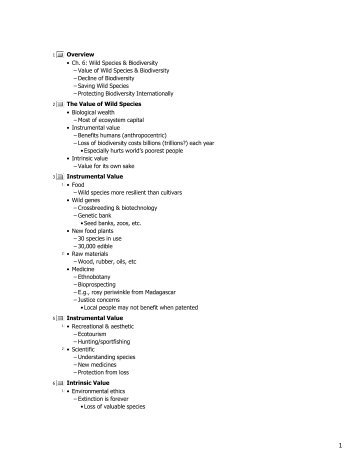

A capital market can be either a primary market or a secondary market. In a primary market, new stock or bond issues are sold to investors, often via a mechanism known as underwriting. The main entities seeking to raise long-term funds on the primary capital markets are governments and business enterprises .
This research helps the Commission shape policy actions and identify where legislation may be needed. Most people are more familiar with public markets than private markets for obvious reasons, but activity in the private markets plays an important role in helping companies receive funding. To understand this lesser known, traditionally opaque space, it’s important to understand how it differs from the public markets. Today, capital markets are a crucial, integral part of a functioning modern economy as they provide the opportunity to transfer money from the people who have it to those who need it for productive use. The discussion mainly centres on capital market situation, banking sector, currency, trade and commerce, and other business issues. There is less attention and information on private companies, making it difficult to invest in them, especially for smaller investors.
Foreign Exchange (Forex, FX)
A capital market is where individuals and firms borrow funds using shares, bonds, debentures, debt instruments, etc. The most common example is a stock exchange such as NASDAQ, trading shares from different companies amongst investors. Financial capital is money entrepreneurs and businesses use to buy resources and supplies. Capital markets are financial markets that bring buyers and sellers together to trade stocks, bonds, currencies, and other financial assets.
Bases on time, there are primary/issue markets and secondary markets. In primary markets, securities issued are transferred for the first time while in secondary markets, there are purchases and sales of the securities that were issued in primary markets. Capital markets are financial markets where people buy and sell long-term debt or equity-backed securities. These markets direct savers’ funds to those who can put them to long-term productive use. For example, governments and corporations making long-term investments are always looking for long-term investors.
Capital markets definition markets also reduce the cost of doing business by providing the global economy with a reliable source of cash or liquidity. Sometimes the company will consult with the investment bank for advice before they make this decision. A security is a fungible, negotiable financial instrument that represents some type of financial value, usually in the form of a stock, bond, or option.
There’s also the over-the-counter market, which features thousands of companies that either don’t want to list on a major stock exchange, or, for one reason or another, cannot qualify to do so. The bank offers the full range of retail and commercial banking products and services as well as foreign exchange and capital market expertise. From equities, fixed income to derivatives, the CMSA certification bridges the gap from where you are now to where you want to be — a world-class capital markets analyst. Some of these are centralized, such as equity securities, foreign exchange, and some derivative securities.
There are many thousands of such systems, most serving only small parts of the overall capital markets. Entities hosting the systems include stock exchanges, investment banks, and government departments. Physically, the systems are hosted all over the world, though they tend to be concentrated in financial centres like London, New York, and Hong Kong. Capital markets are where savings and investments are channeled between suppliers and those in need. Suppliers are people or institutions with capital to lend or invest and typically include banks and investors.

Interest is the required compensation that entices lenders to lend their money. The borrowers will take the money today, use it to finance their operations, and pay back the money in addition to a prescribed rate of interest at a later date. EarningsEarnings are usually defined as the net income of the company obtained after reducing the cost of sales, operating expenses, interest, and taxes from all the sales revenue for a specific time period. In the case of an individual, it comprises wages or salaries or other payments. Promissory NotesA promissory note is defined as a debt instrument in which the issuer of the note promises to pay a specified amount to a party on a particular date.
What are funds?
Finally, corporate bonds are used by businesses to raise funds on the open market. Businesses don’t have to be publicly traded to issue bonds, but they do have to file with the SEC to keep investors updated on their financials. The federal government raises funds by issuing treasury bonds, bills, and notes that trade on the secondary market. These bonds are considered to be safe investments because they are backed by the government’s massive tax revenue. Other bonds are often priced relative to treasuries based on how risky they are perceived to be.
- We are often the first international, non-government issues of these bonds, paving the way for other issuers.
- The majority of modern primary and secondary markets are computer-based electronic platforms.
- We also reference original research from other reputable publishers where appropriate.
- Funds borrowed from money markets are typically used for general operating expenses, to provide liquid assets for brief periods.
- Cash And Cash EquivalentsCash and Cash Equivalents are assets that are short-term and highly liquid investments that can be readily converted into cash and have a low risk of price fluctuation.
The secondary market is where existing securities are traded, often on popular exchanges such as the London Stock Exchange . Private markets and public markets both have primary and secondary markets. When it comes to stocks, bonds, options, and several other types of investments, there are regulatory agencies such as the Securities and Exchange Commission that oversee trading activity. Their regulations apply to both primary and secondary market activity.
What is the difference between the capital markets and money markets?
Otherwise, employees of privately held companies who receive equity compensation can also be involved. Cap tables are important because they show who invested in each round at what share price. This helps investors understand how valuable their equity is, as well as how diluted shares might be. Valuations are an indicator of investors’ risk appetite for the VC strategy as well as the quality of the startups that are in the market raising capital. For this reason, they affect many areas throughout the venture cycle, from negotiations on investments to investor fund performance. In the public markets, a company’s market capitalization is often casually considered to be their valuation, though investors may each have their own valuation for a specific company based on their own models or analysis.
When a company goes public, it sells its stocks and bonds to large-scale and institutional investors, such as mutual funds, hedge funds, pension funds and sovereign wealth funds. The key distinction to keep in mind is that capital markets are places where capital can be raised, not just where assets can be traded among investors. Capital markets primarily feature two types of securities – equity securities and debt securities. Both are forms of investments that provide investors with different returns and risks and provide users with capital with different obligations.
Capital Markets and Securities Law Reform under Indonesia’s 2023 … – Lexology
Capital Markets and Securities Law Reform under Indonesia’s 2023 ….
Posted: Thu, 13 Apr 2023 07:59:05 GMT [source]
A recent lack of confidence in the economy has resulted in tighter capital markets and more difficulty in raising funds. Financial Markets means international financial markets in which currency and other financial assets exchange rates are determined in multi-party trade. Many big businesses use the stock and bond markets to raise new capital for growth. Working towards a capital markets union remains a top priority of the Von Der Leyen Commission and is part of Executive Vice President Valdis Dombrovskis’ mandate for an economy that works for people. GPs and founders commonly participate in secondary markets as they often have equity in private companies.
Resources
The secondary market is when the security holders trade with other investors in a transaction that is separate from the issuing company. The primary market is when a company directly issues the securities in exchange for capital. Fixed IncomeFixed Income refers to those investments that pay fixed interests and dividends to the investors until maturity. Government and corporate bonds are examples of fixed income investments. Other intermediaries include investment banks, venture capitalists, and brokers. A capital market assists an economy by providing a platform to gain funds for business operations, development activities, or wealth enhancement.
https://forex-world.net/ of secondary markets are the London Stock Exchange, the New York Stock Exchange, NASDAQ, etc. Fixed income refers to assets and securities that bear fixed cash flows for investors, such as fixed rate interest or dividends. The definitions provide an introduction to each term and may raise complex issues on which specific legal advice is required. The terms are also subject to change as applicable laws and customary practice evolve.

A valuation determines a company’s current dollar value based on a variety of factors, including capital and ownership structure. The value of shares and ETFs bought through a share dealing account can fall as well as rise, which could mean getting back less than you originally put in. Volatility profiles based on trailing-three-year calculations of the standard deviation of service investment returns. In the early 1990s the capital market received a tremendous boost from policies of deregulation and liberalization.
84% of retail investor accounts lose money when trading CFDs with this provider. Stock Market Sectors The larger stock market is made up of multiple sectors you may want to invest in. Founded in 1993 by brothers Tom and David Gardner, The Motley Fool helps millions of people attain financial freedom through our website, podcasts, books, newspaper column, radio show, and premium investing services. Investments are financed primarily through self-financing and borrowing in the capital market.
The subsequent trading of company securities between investors is known as secondary market activity. Short-term securities are traded elsewhere, such as in the money market. Debt capital markets is a division of investment banking and a concept in corporate finance.
Related terms:
As a concept, a debt capital market is a space for companies and governments to buy and sell debt as a way to raise capital or make a profit. DCM divisions of investment banking companies facilitate the creation and sale of debt securities for their clients. Capital Markets are a type of financial market where long termer debts and equities are traded or originated.
Money markets are the second type of financial market that complement the need served by capital markets. The difference is money in money markets is raised for short term financial needs through short term financial instruments. Where long term financial assets underpin capital markets, short term liquid assets are traded in money markets.
Capital market improves the quality of information available to the investor regarding the investment. Add to that, it plays a crucial role in encouraging the adoption of rules of corporate governance, which backs the trading environment. It includes all the processes that help in the transfer of already existing securities. Currency and derivatives markets are mostly used by businesses to hedge future profits and investors to speculate using leverage. Capital markets exist to link investors with businesses in need of capital. Objectives of the capital markets union and what has been done so far.
The capital market definition refers to a broad spectrum of tradable assets, including the stock market, the bond market, the foreign exchange market as well as other venues used for trading various financial products. It allows investors, companies, banking institutions and governments to trade stocks, bonds and other instruments, either publicly or privately. Regular bank lending is not usually classed as a capital market transaction, even when loans are extended for a period longer than a year. First, regular bank loans are not securitized (i.e. they do not take the form of a resaleable security like a share or bond that can be traded on the markets). Second, lending from banks is more heavily regulated than capital market lending.
With the wide range of investment alternatives present in the market, an investor may not make a fruitful choice without professional advice. Rights IssueThe term “right issue of shares” refers to the offering of shares to all existing Equity or Preference shareholders of the Company in proportion to their current shareholding in the Company. People buy stock because they believe eventually the value of the stock will go up, allowing them to sell the stock at a higher price than the initial purchase price. Refer to the references used for each year to find a breakdown of capital market size for individual countries and regions. Even if there is no activity from big players, U.S. citizens might be making small investments through channels like Treasury Direct.
House Subcommittee On Capital Markets Hearing Addresses Capital Formation And Investment Opportunities For – Crowdfund Insider
House Subcommittee On Capital Markets Hearing Addresses Capital Formation And Investment Opportunities For.
Posted: Wed, 12 Apr 2023 22:38:23 GMT [source]
The money markets are used for the raising of short-term finance, sometimes for loans that are expected to be paid back as early as overnight. In contrast, the “capital markets” are used for the raising of long-term finance, such as the purchase of shares/equities, or for loans that are not expected to be fully paid back for at least a year. The equity capital market, where financial institutions help companies raise equity capital, comprises the primary market and secondary market. Suppliers include households as well as institutions like pension and retirement funds, life insurance companies, charitable foundations, and non-financial companies that generate excess cash. The users of the funds distributed on capital markets include home and motor vehicle purchasers, non-financial companies, and governments financing infrastructure investment and operating expenses.





















